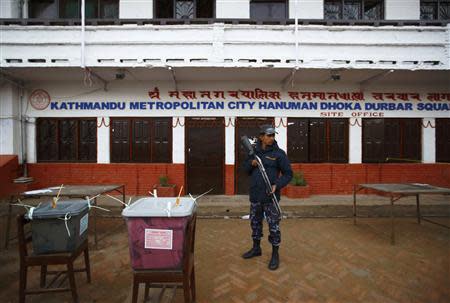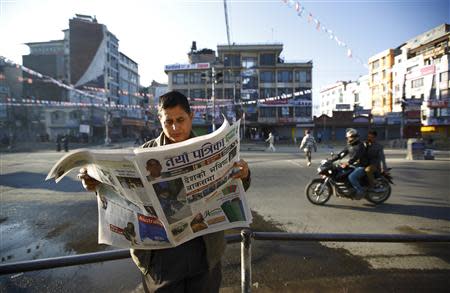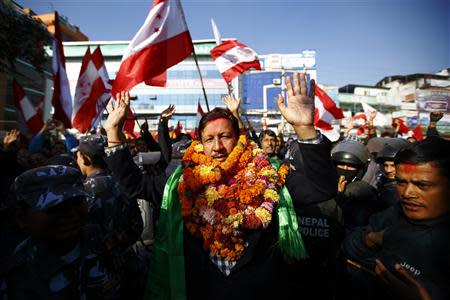Nepal Maoists trail in election, demand vote count suspension
By Gopal Sharma KATHMANDU (Reuters) - - Nepal's powerful Maoists, trailing in this week's election, called for an end to vote counting on Thursday, risking further political instability in the small Himalayan nation. The ballot will elect an assembly, which will act as parliament, and draft a constitution aimed at ending years of instability which has seen five governments in as many years. The Maoists, who gave up a 10-year armed revolt and were instrumental in the overthrow of Nepal's monarchy, emerged as the single largest party in a 2008 election. But early trends from Tuesday's election showed them to be in third place in 100 out of 240 seats under the first-past-the post system, behind the centrist Nepali Congress and the United Marxist Leninist party. Counting for another 335 seats under the proportionate system is expected to be completed in a week. "There was a big conspiracy against the election. Ballot boxes were exchanged. We want the counting process to be suspended," senior Maoist leader Dinanath Sharma said. Maoists had earlier called for a boycott of the election. The Election Commission rejected the Maoists' demand and said the people's verdict must be respected. "I urge all political parties, media, and observers to show restraint until the results from the counting come," Chief Election Commissioner Neel Kantha Uprety said. An estimated 70 percent eligible voters cast their ballot and the election was largely seen as free and fair. The high turnout showed hope for change despite the failure of a previous attempt to draw up a constitution after a 2008 election, when political groups were unable to agree on the form of government and the number of states the ethnically diverse nation should be divided into. Nepal's giant neighbors, India and China, have grown increasingly concerned about its prolonged struggle to build a stable republic to replace a centuries old monarchy. The fear is that the poor, mountainous country of nearly 27 million people, which is dependent on tourism, remittances and aid, will drift without effective government and become a haven for militants and criminal gangs. (Writing by Sanjeev Miglani; Editing by Michael Perry)




